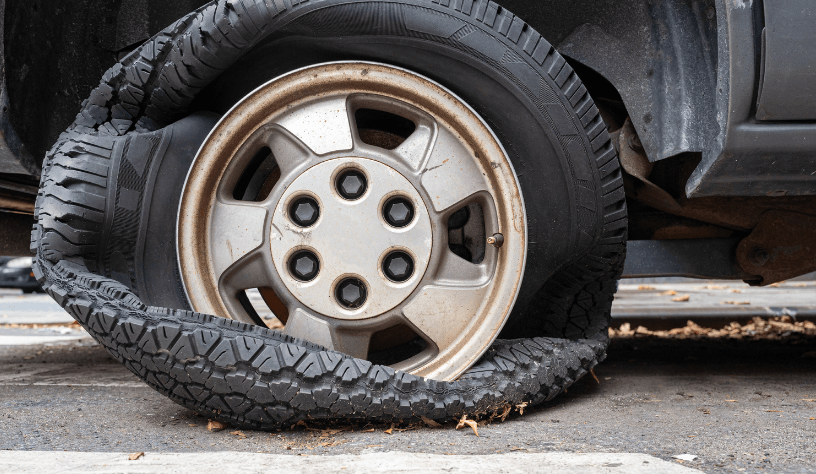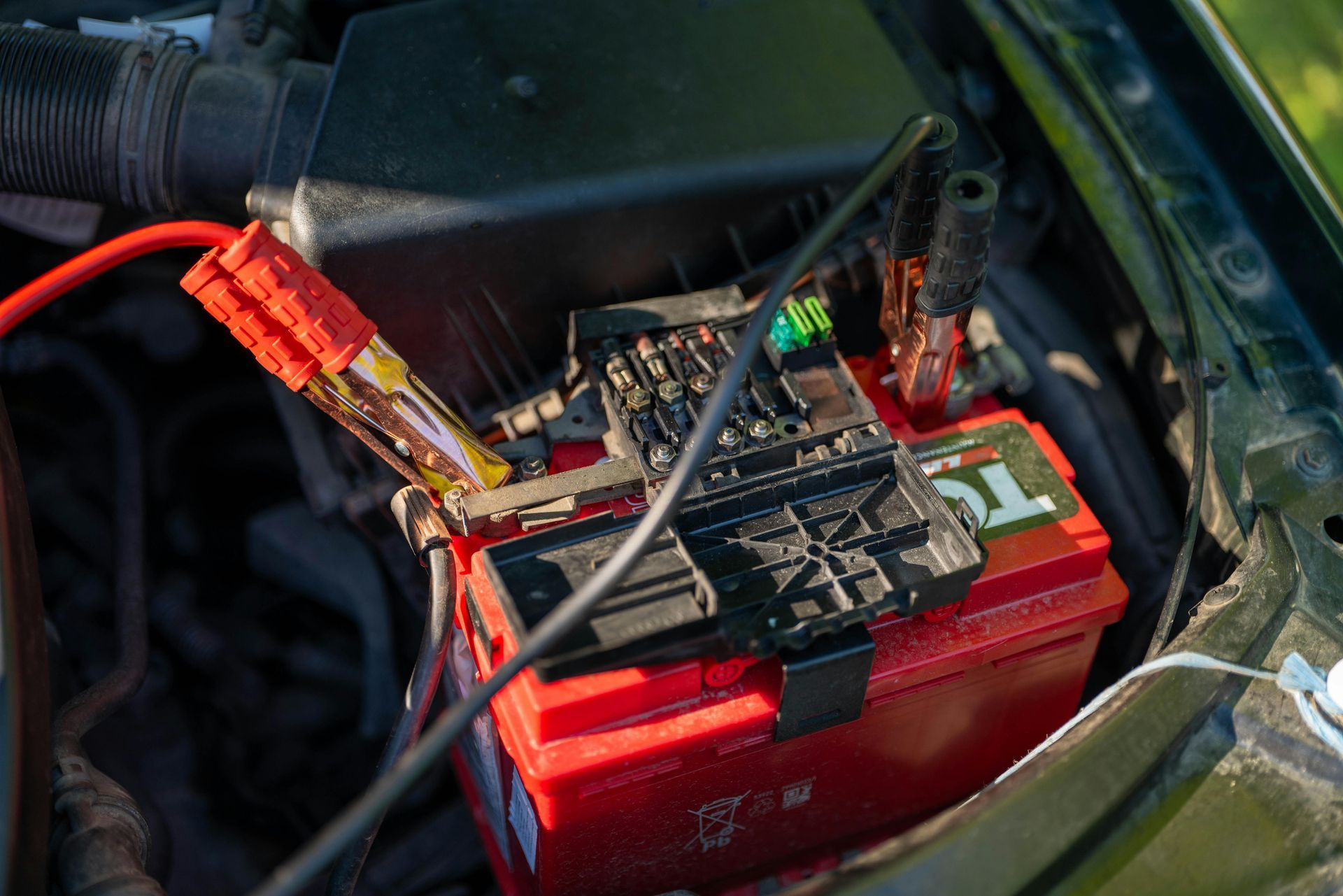A Complete Guide to Tire Blowouts
Auto Shops Located in: Chapel Hill, Durham, Taleigh, Apex, and Cary North Carolina

One moment, you are safely driving down the road. In an instant, your car is suddenly spinning out of control or veering off the road. This is the terrifying reality for drivers experiencing a tire blowout. The local mechanics at Chapel Hill Tire are here with everything you need to know about tire blowouts.
What is a Tire Blowout?
A tire blowout is when a tire suddenly loses pressure—making it “burst” or “explode.” This process can cause the vehicle to lose control. In many cases, the tire’s tread will detach, and the rubber will separate—leaving behind an unrecognizable tire inundated with damage.
The Difference Between a Tire Blowout and a Flat Tire
Many drivers mistakenly refer to tire blowouts and flat tires interchangeably. Flat tires occur when the tire gradually reaches a pressure too low to drive on. However, tire blowouts happen instantly and violently—creating a far more dangerous outcome. Another key difference is that flat tires can often be repaired. Conversely, tire blowouts will always require a replacement.
7 Causes of Tire Blowouts
So, what causes tire blowouts? Several risk factors can cause a tire blowout, including tire pressure issues, tire age, manufacturer defects, and road hazards. Understanding the cause of your tire blowout is vital. This insight can impact liability, fault, and settlements when the tire blowout leads to a car accident. Our mechanics are here to unpack some common causes of tire blowouts.
1: Overinflated Tires
Much like an overinflated balloon, tires with too much pressure can pop. While overinflated tires are more likely to create flats, they can cause complete blowouts if put under enough stress. This is especially true when combined with other factors—like excessive heat and aged rubber.
2: Underinflated Tire Blowouts
You might be surprised to learn that underinflated tires are more prominent blowout culprits. When your tire is underinflated, the sidewalls will bend and flex. This process exposes more surface area to the road—generating additional friction. Friction creates heat, which causes the air inside your tires to expand. Meanwhile, sidewall damage can compromise the structural integrity of the tire. Collectively, these hazards cause your tire to break down.
3: Summer Weather and Heat
Have you ever wondered why tire blowouts are more common in the summer? You’ll find one common denominator of most tire blowout causes: heat. The hot asphalt will intensify any stressors your tire is facing. For example, the heat will cause further air expansion inside the tire and quicker rubber deterioration.
4: Overloaded Vehicles
We think of our cars as industrial machines that can manage our cargo with ease. However, your tires can only handle a limited weight load. When you put too much pressure on your tires, they are more likely to burst. If you look in your tire information panel, it should include load information. The fine print will tell you the combined weight of passengers and cargo that your tires can safely manage.
5: Tire Age
Did you know? Many countries have banned old tires (even when the tread is thick) after they were proven to cause car accidents. As your tire ages, the rubber oxidizes. This process will cause tread separation, sidewall deformation, and tire blistering. You can read our complete guide to tire age here.
6: Manufacturer Defects
While rare, there is a chance you have a “lemon” tire. Manufacturer defects can be caused by expired materials, poor craftsmanship, or machinery malfunctions.
The U.S. Tire Manufacturers Association has a Tire Recall Lookup tool for drivers. Simply enter your tire’s DOT number to see if there are any known defects to your unit. In these cases, you can get your tire replaced at a local mechanic shop for free.
7: Potholes, Nails, and Other Road Hazards
Nails, screws, and other sharp objects can penetrate your rubber on the road. Most small punctures will gradually release air, leading to a flat tire. However, severe puncture wounds can cause a drastic change in air pressure, creating a tire blowout. Other road hazards, like potholes, also pose serious blowout threats.
How to Prevent Tire Blowouts
It can be challenging to control your vehicle once it experiences a tire blowout. Thankfully, there are a few steps you can take to prevent tire blowouts altogether:
- Tire Pressure: Keep your tires inflated to the manufacturer-recommend PSI. You can easily refill your tires with air using our 5-step guide here—or have your tires filled for free at a local mechanic. We also have an easy guide to checking your tire pressure here.
- Avoid Road Hazards: Nails most commonly get stuck in tires on the shoulder of the road. Staying on track can help you avoid these hazards. Additionally, you should avoid potholes on your commutes when possible.
- Replace Old Tires: Even if you find thick tire tread on old tires, you should have them replaced. Internal tire damage is often the most dangerous.
- Routine Maintenance: Your local mechanics will inspect your tires during routine maintenance visits, like oil changes. By keeping up with your recommended car care, experts can identify signs of failing tires before you experience a tire blowout.
New Tires Near Me
You can prevent tire blowouts with the mechanics at Chapel Hill Tire. We will inspect your tires with every oil change and routine service, helping to ensure they are safe on the road. We can also fix bent rims and replace your tire after you experience a blowout.
Chapel Hill Tire proudly serves the greater Triangle area with 10 locations across Cary, Apex, Raleigh, Chapel Hill, Carrboro, and Durham. You can make an appointment or give us a call to get started today!















